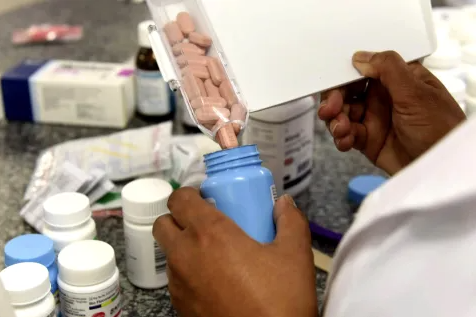Business
CPT Pharma Aims to Transform South Africa’s Pharmaceutical Landscape

South Africa is taking a significant step towards pharmaceutical self-reliance with CPT Pharma, a Pretoria-based company, leading the charge in local production of active pharmaceutical ingredients (APIs). These essential components power the medicines that treat conditions like tuberculosis (TB) and HIV, yet 98% of them are currently imported.
Breaking Dependence on Imports
The local pharmaceutical sector produces about 60% of the medicines sold in South Africa, but APIs remain a critical gap. South Africa spends approximately R15 billion annually importing APIs, mainly from India and China. CPT Pharma aims to change this narrative by producing APIs locally, starting with TB medicines.
Established in 2014, CPT Pharma has secured significant milestones, including licenses from the US Agency for International Development (USAID) and the Medicines Patent Pool to produce APIs for rifapentine (a TB prevention drug) and molnupiravir (a COVID-19 treatment). These achievements align with South Africa’s broader industrial policy goals of boosting local pharmaceutical manufacturing.
CPT Pharma’s strategy revolves around in-house technology development, allowing the company to remain competitive and independent of Big Pharma’s technology transfers. “To be competitive and independent, you have to have your own technology,” says CPT Pharma’s MD, Hannes Malan.
The company has also received robust support from government agencies like the Industrial Development Corporation (IDC) and the Technology Innovation Agency (TIA), as well as international organizations like the Gates Foundation and USAID. These partnerships have helped fund the company’s pilot plant and its groundbreaking work on APIs like isoniazid, another critical TB drug.
Plans for Commercial-Scale Facilities
While CPT Pharma’s pilot plant is operational and capable of producing commercial quantities of rifapentine, the company is eyeing larger projects. Construction has started on an isoniazid API manufacturing plant, which will supply 60% of South Africa’s local demand once complete. However, an additional R20 million is needed to finalize the project.
The company is also planning a multi-API manufacturing facility to produce various APIs at commercial scale. Estimated at $100 million, this ambitious project underscores the need for further investment in local pharmaceutical infrastructure.
Impact on TB Treatment in South Africa and Beyond
CPT Pharma’s efforts are particularly significant for TB treatment. By producing isoniazid and rifapentine locally, the company can ensure a steady supply of these essential drugs. It also plans to seek World Health Organisation (WHO) pre-qualification for its rifapentine API by 2025, opening the door for broader distribution across Africa.As South Africa strives to strengthen its pharmaceutical industry, CPT Pharma’s innovations highlight the potential for local production to reduce reliance on imports, bolster economic growth, and improve public health outcomes. With the support of government and international partners, CPT Pharma is paving the way for a more self-reliant future in healthcare.
Follow Joburg ETC on Facebook, Twitter , TikTok and Instagram
For more News in Johannesburg, visit joburgetc.com















